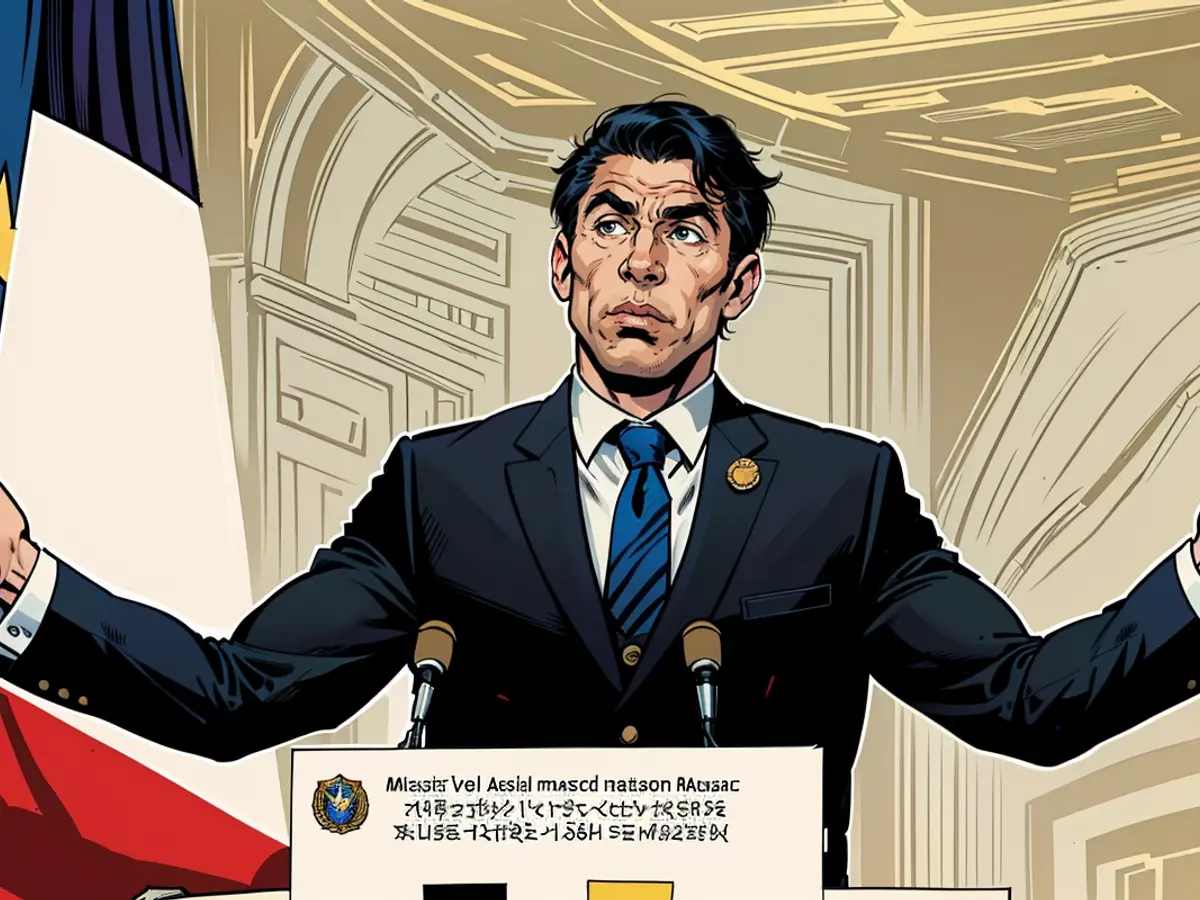Macron will allow time for government formation
France is politically calm after the election. No majorities have been formed yet to build a new government. The Left is proposing Finance expert Lucie Castets for the position of Prime Minister. However, President Macron wants to postpone his decision.
French President Emmanuel Macron will not name a new Prime Minister before the end of the Olympic Games. "We need to focus on the Olympics until mid-August. After that, it will be my responsibility to appoint a Prime Minister or a Prime Minister based on the discussions", Macron told France 2.
Regarding the recently proposed candidate of the Left, the 37-year-old Finance expert Lucie Castets, Macron initially declined to comment. "It's not about names now, it's about which majority forms in the National Assembly", Macron said. The President urged all parties to cooperate. "It's their responsibility, as in all European democracies and what hasn't happened in our tradition yet, to make compromises", he emphasized.
"Promise kept"
After two weeks of negotiations, the French Left had agreed on an almost unknown economic expert as their candidate for the position of Prime Minister. The New Popular Front announced the 37-year-old Lucie Castets as their candidate. "The New Popular Front now has a candidate. Promise kept", wrote Socialist Party leader Olivier Faure on the online service X.
The New Popular Front presented Castets as a defender of public service and an opponent of a retirement age of 64. She was described as a high-ranking civil servant who had fought against tax fraud. Climate expert Laurence Tubiana, who had also been in the running for the position of Prime Minister, had withdrawn her candidacy the previous day. The left-populist party La France Insoumise (Unbowed France), which is the largest group within the New Popular Front, had spoken out against her and accused her of being too close to French President Emmanuel Macron.
Political unrest averted
The New Popular Front surprised everyone by coming in first place in the parliamentary elections called by Macron in early July. Traditionally, the largest party in the National Assembly proposes a candidate for the position of Prime Minister. The President can appoint whoever he wants, but is obliged to ensure that the Prime Minister or Prime Minister has a majority for the government's legislative proposals in the National Assembly. The early elections, however, have led to a deadlock situation, in which none of the three parties have a majority.
The incumbent Prime Minister and his government are still in office. Macron wanted to prevent political unrest during the Olympic Summer Games, which begin on Friday. The newly elected National Assembly has been constituted and has divided into eleven factions. However, it is factually idle, as the government no longer brings any legislative proposals. Macron hopes for a coalition with the moderate right and the Socialists, but both parties refuse to cooperate. He had called the early elections after the triumph of the right-wing Rassemblement National (RN) in the European elections.
Despite the French Left's new candidate for Prime Minister, Emmanuel Macron remains hesitant to make a decision, citing the ongoing political situation in France and its impact on the Olympic Games in Paris. The political landscape in France is currently in a state of flux, with the Left, moderate right, and Socialists each holding significant influence, making it difficult for any single party to form a majority and form a new government. The current government, led by an incumbent Prime Minister, remains in power temporarily to avoid political instability during the Olympics.








